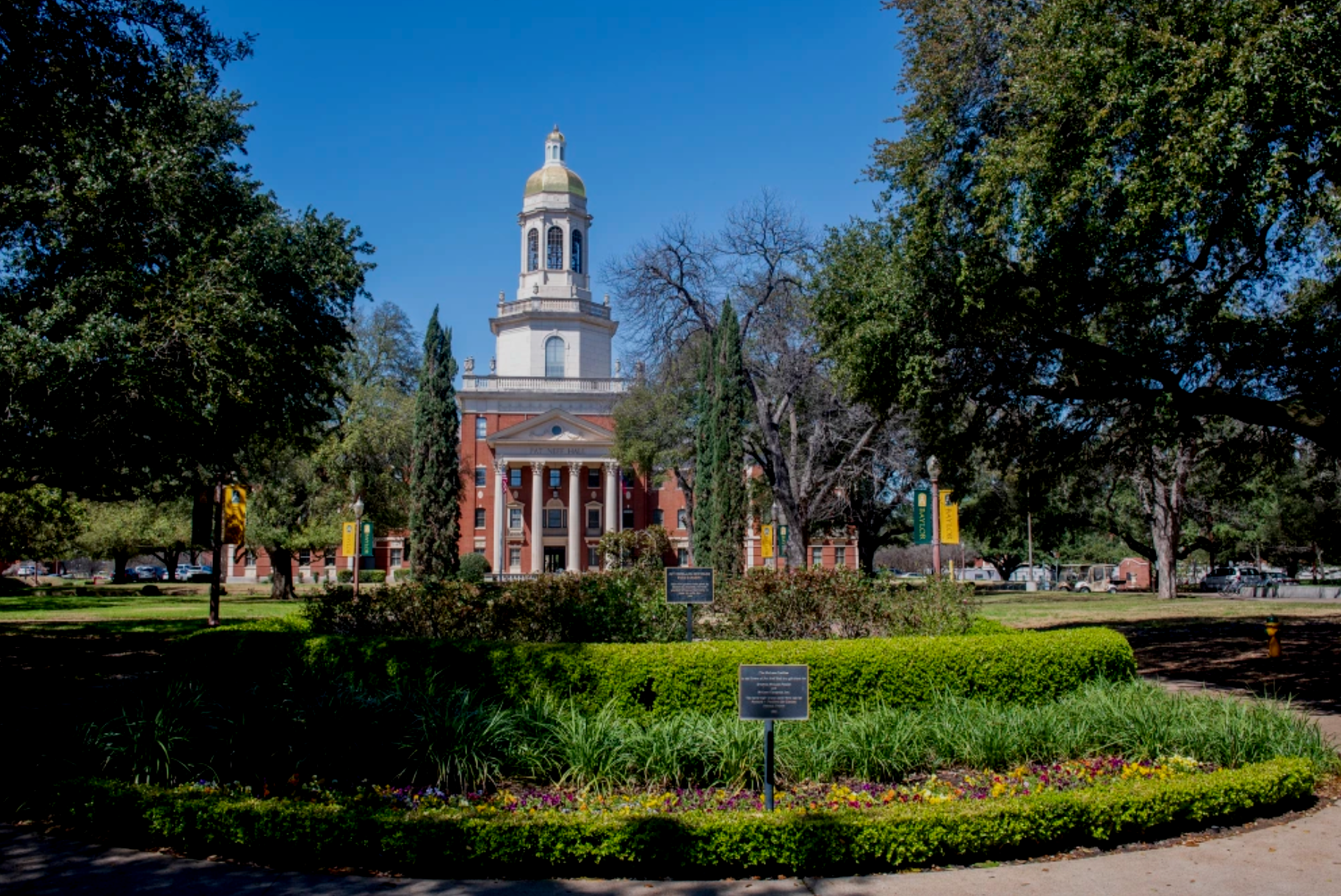Waco Tribune | Matt Kyle | Aug. 11, 2023
The U.S. Department of Education has recognized Baylor University’s right to religious exemptions from certain Title IX policies pertaining to LGBTQ students and staff.
In a July 25 letter to Baylor, the department’s Office for Civil Rights declared the Baptist university is exempt from those provisions “to the extent that they are inconsistent with the University’s religious tenets.”
The provisions in question broadly include issues such as admission, sexual harassment, housing, financial and employment assistance, and rules on private organizations.
The letter from Catherine Lhamon, assistant secretary for civil rights, states that Baylor is not exempt from Title IX as a whole, and the federal agency would determine whether future complaints fall within the recognized exemptions.
The Education Department in June 2021 issued guidance that the landmark 1972 act barring sex-based discrimination extended to discrimination based on sexual orientation and gender identity. That same year, the Office for Civil Rights received several complaints against Baylor for violating that guidance, and the agency followed up this April 7 with a letter to the university.
Baylor President Linda Livingstone on May 1 responded with a letter stating that the four LGBT-related complaints must be dismissed because “the allegations directly implicate Baylor’s religious exemption from Title IX of the Education Amendments of 1972, as well as the Free Exercise Clause of the U.S. Constitution and other laws.”
Livingstone stated that Baylor “does not discriminate on the basis of sexual orientation or gender identity per se, but it does regulate conduct that is inconsistent with the religious values and beliefs that are integral to its Christian faith and mission.”
Livingstone argued that the alleged Title IX violations stemmed from its application of the Statement on Human Sexuality, Sexual Conduct Policy, Civil Rights Policy, Theological Seminary Policy, Baptist Faith and Message of 1963 and Truett Handbook to the campus community.
The university’s human sexuality statement says Baylor welcomes and supports all students, including LGBTQ students, but that heterosexual sex outside of marriage and homosexual behavior deviate from the “biblical norm” of sexuality.
The letter also lists three specific situations alleged to have violated Title IX policies:
The university’s decision to deny an official charter to Gamma Alpha Upsilon, an LGBTQ student organization
The university’s alleged response to notice that students were submitted to harassment based on sexual orientation and gender identity
Baylor’s alleged pressure on university media to not report on LGBTQ protests and events in September and October 2021.
Exactly what kind of media pressure was alleged is unclear in the correspondence between Lhamon and Livingstone. The Baylor Lariat, the student newspaper, published several articles in September and October 2021 about Baylor’s decision not to charter Gamma and protests related to that decision, as well as the university’s decision to instead charter PRISM, a new LGBTQ student group, instead of Gamma.
In her May letter, Livingstone wrote that the university is not required to request a religious exemption from the Education Department, but the department has previously acknowledged Baylor’s right to religious exemptions. University President Abner McCall made a claim in 1976 that its status as a university “controlled by the Baptist General Convention of Texas” protected its enrollment and employment decisions regarding unmarried pregnant women, as well as programs favoring males in ministry.
Livingstone’s letter describes Baylor as “closely affiliated” with the BGCT but does not claim it is controlled by the convention.
The exemptions asserted by Livingstone and confirmed by Lhamon concern anti-discrimination provisions in Title IX in the following categories: Effects of rules on private organizations, admission, recruitment, sexual harassment, education programs or activities, housing, comparable facilities, access to classes and schools, counseling, financial assistance, employment assistance to students, health and insurance benefits and services, marital or parental status, athletics, physical education assessments, and employment.
According to a press release from the Religious Exemption Accountability Project, the complaint about Baylor’s response to reported harassment based on sexual orientation originated from Veronica Penales, a former Baylor student. The release says Penales filed a Title IX complaint in 2021 accusing Baylor of tolerating sexual harassment, which was opened for federal investigation earlier this year.
“I am saddened by Baylor’s lack of integrity and accountability to their students,” Penales said in the release. “I know many will not feel safe returning to campus, and rightfully so. If Baylor believes it has a religious liberty right to allow us to be harassed, there truly are no protections left for us.”
According to an April 7, 2021, Baylor Lariat article, same-sex spouses of faculty are not eligible for health care coverage under Baylor’s group insurance policy. The policy defines an eligible dependent spouse as “your spouse of opposite sex to whom you are legally married.”
Earlier this year, a federal district judge in Oregon ruled against a group of LGBTQ students in a lawsuit against several religious universities seeking to challenge the law allowing Title IX exemptions for religious universities. Penales was one of the 40 plaintiffs listed in the lawsuit.
In a statement to the Tribune-Herald, Baylor said it was “unfortunate” that the university’s assertion of its existing religious exemptions with the department of education are being “mischaracterized” as a broad exception to sexual harassment policy within Title IX regulations.
“Instead, Baylor is responding to current considerations by the U.S. Department of Education to move to an expanded definition of sexual harassment, which could infringe on Baylor’s rights under the U.S. Constitution, as well as Title IX, to conduct its affairs in a manner consistent with its religious beliefs,” the statement reads. “Baylor has taken and will continue to take meaningful steps to ensure members of the LGBTQ community are loved, cared for and protected as a part of the Baylor Family. Further, the University remains committed to promoting and maintaining an educational environment in which students can learn and grow in accordance with our Christian mission and our call to love our neighbors as ourselves.”











